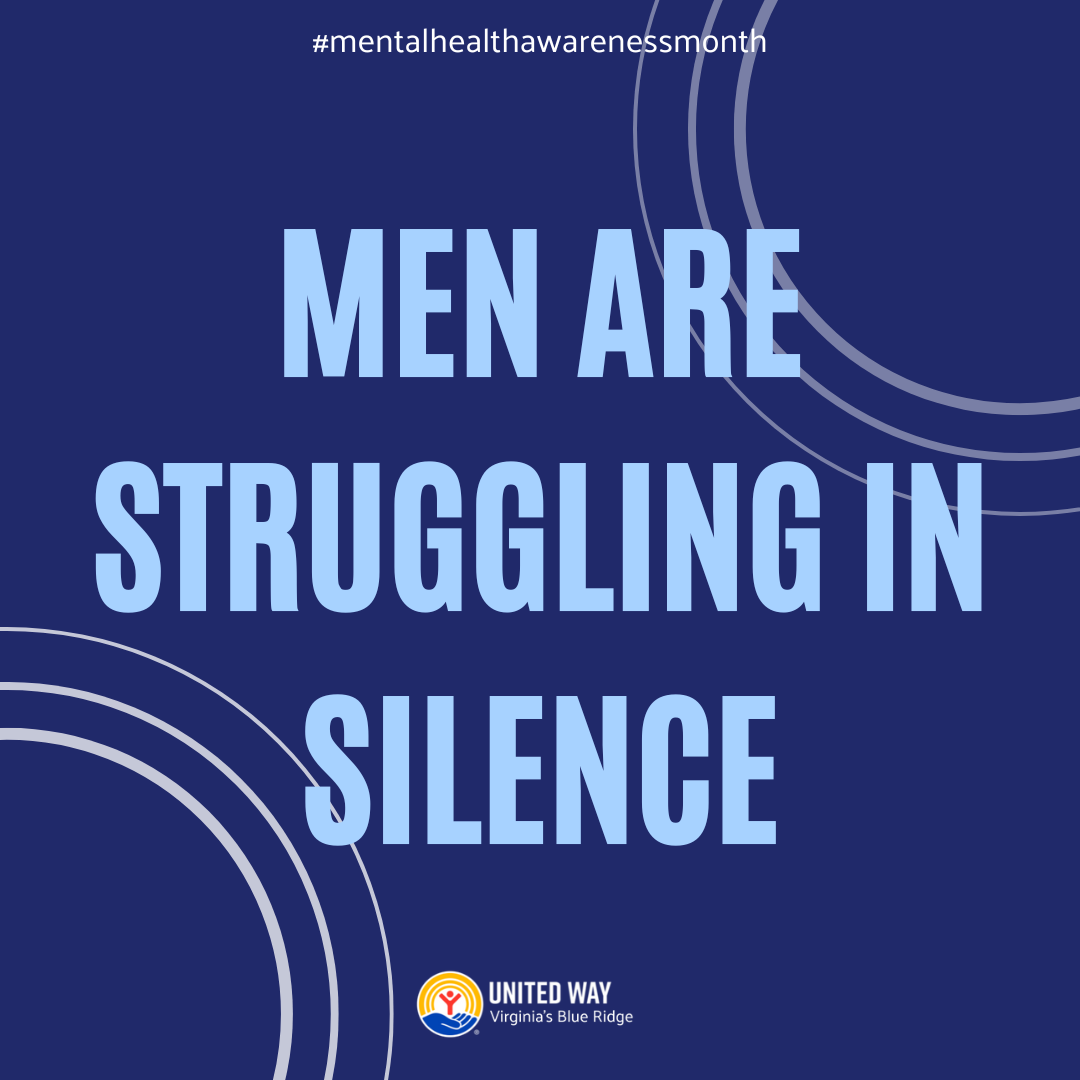When we think about mental health, men often get left out of the conversation. Whether it’s due to stigma, societal expectations, or silent suffering, men are less likely to speak up—and more likely to experience the consequences in silence.
This Mental Health Awareness Month, we’re spotlighting some lesser-known facts about men’s mental health—and offering tips to help you support yourself or someone you care about.
1. Men are less likely to seek help.
Studies show only 1 in 4 men who struggle with mental health challenges will ask for help.
💡 Try this: Reach out without judgment. Even asking, “Want to talk?” can open the door.
2. Suicide rates are nearly 4x higher for men.
Men make up the majority of suicide deaths in the U.S., often without warning signs that are easy to spot.
💡 Try this: Know the signs—withdrawal, reckless behavior, irritability—and ask directly if you’re concerned.
3. Depression may look different in men.
Men often express depression through anger, frustration, or risk-taking instead of sadness or crying.
💡 Try this: Watch for changes in mood or behavior that don’t seem like “typical stress.”
4. Workplace stress takes a major toll.
Men may feel pressure to “power through” rather than rest or ask for help.
💡 Try this: Support mental health breaks, and remind the men in your life that rest isn’t weakness.
5. Substance misuse can be a coping strategy.
Men are more likely to turn to alcohol or drugs when dealing with emotional pain.
💡 Try this: Encourage nonjudgmental conversations and suggest healthier coping tools—like movement, therapy, or connection.
6. Loneliness is quietly hurting men’s mental health.
Men in the U.S. are facing an epidemic of loneliness—especially in midlife. One survey found that 15% of men have no close friendships, and many haven’t made a new friend in years. Chronic loneliness increases the risk of depression, anxiety, and suicide.
💡 Try this: Be intentional about connection. Reach out to a friend you haven’t talked to in a while, schedule something social (even a walk), or join a group with shared interests. Friendship isn’t just nice—it’s necessary.
7. fatherhood can trigger depression.
Yes, even dads get postpartum depression. Up to 10% of new fathers experience it, but few talk about it.
💡 Try this: Ask new dads how they’re doing, not just how the baby is.
8. Representation in care matters.
Men may feel more comfortable opening up to a provider who understands male mental health.
💡 Try this: Help someone find a support group, therapist, or resource that feels relatable and welcoming.
Supporting men’s mental health starts with seeing them—really seeing their struggles, emotions, and needs. Whether you’re a friend, partner, colleague, or parent, your compassion can be life-changing.
Need help? Visit NAMI, Mental Health America, or call/text 988 for free, confidential support.
📢 Share this post to help break the stigma.
💬 Tell us: What’s one thing that’s helped you or a man you care about feel supported?





